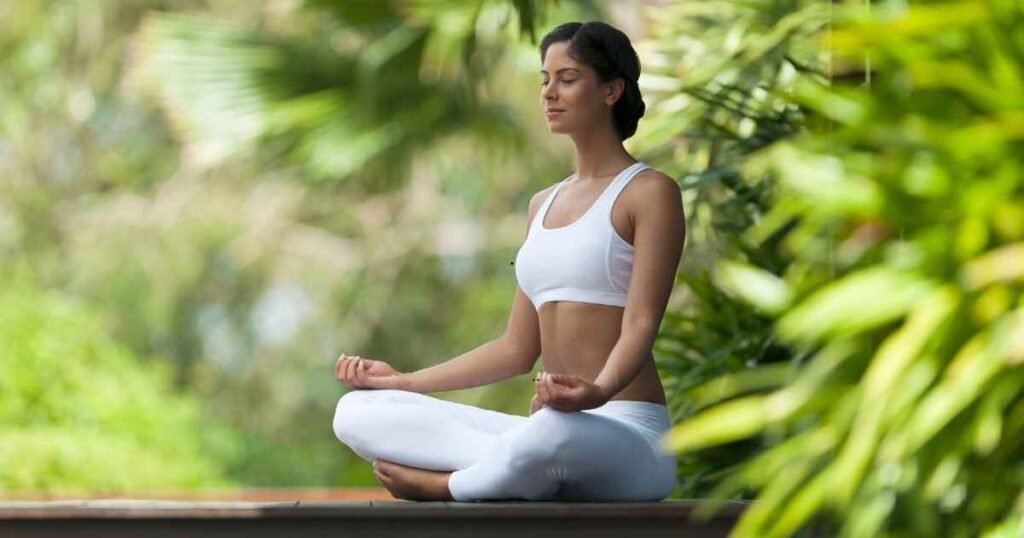Introduction to Non Reactiveness
What Is Non Reactiveness?
Non reactiveness refers to the ability to maintain composure and neutrality in the face of challenges, conflicts, or emotionally charged situations. It involves consciously choosing not to respond impulsively to external triggers, instead allowing space for thoughtful reflection and intentional action. Practicing non reactiveness lets individuals break free from patterns of negative reactions, fostering personal growth and emotional balance. The conception is embedded in awareness, helping individualities stay predicated in the present moment. By cultivating non reactiveness, one can achieve greater mental clarity and a heightened sense of control over their responses, leading to more measured and effective decisions.
Why Non Reactiveness Matters Today
Non reactiveness is especially vital in today’s fast-paced and interconnected world, where constant stimuli and stressors can often overwhelm us. By practicing non reactiveness, individuals can shield themselves from being controlled by external pressures and emotional turbulence. Social media debates, workplace conflicts, and everyday stressors demand composure, and non reactiveness empowers people to respond without being overly defensive or reactive. This approach leads to healthier relationships, better problem-solving, and a more peaceful mindset. Given the rising levels of anxiety in modern society, adopting non reactiveness as a skill is invaluable for maintaining balance and achieving long-term well-being.
Must Read: Spontaneity Over Stability. Sacrifices Future Security
Benefits of Non Reactiveness for Personal Well-being
Reducing Stress Through Non Reactiveness
Non reactiveness is a important tool for reducing stress. By choosing not to react impulsively to external triggers, individuals can maintain a calm and composed state of mind. Stress often stems from overanalyzing situations or reacting emotionally to challenges. Non reactiveness helps break this cycle by creating a internal buffer between an event and the existent’s response. This approach prevents emotional overload and reduces the body’s stress responses, such as increased heart rate or tension. Through consistent practice, non reactiveness allows individuals to approach situations thoughtfully, fostering resilience and minimizing the impact of stress on daily life.
Building Emotional Boundaries and Inner Peace
Non reactiveness plays a critical role in building emotional boundaries and cultivating inner peace. By not allowing external negativity to dictate emotions, individuals can create a protective space around their mental well-being. Non reactiveness helps distinguish between what truly matters and what can be dismissed, enabling a focus on positivity and personal growth. This practice not only fosters emotional self-control but also shields individuals from unnecessary drama and conflict. Over time, non reactiveness nurtures a sense of inner peace, providing clarity and stability amid life’s challenges, ultimately contributing to a more balanced and fulfilled existence.
The Role of Non Reactiveness in Personal Well-being
- Reduces Stress: Practicing non reactiveness helps lower stress levels by avoiding instant emotional responses to challenging situations.
- Encourages Mindfulness: It allows individuals to pause and assess situations carefully, promoting thoughtful and mindful actions.
- Improves Relationships: Non reactiveness fosters better communication and understanding by preventing impulsive reactions that can escalate conflicts.
- Promotes Emotional Resilience: By staying calm and composed, individuals build emotional strength to face setbacks with greater ease.
- Supports Mental Clarity: Non reactiveness clears the mind from unnecessary noise, making it easier to focus on meaningful goals and decisions.
Non Reactiveness in Professional Growth
Non reactiveness plays a crucial role in fostering professional growth and success. By staying composed in high-pressure scenarios, individuals can make more rational decisions, avoiding impulsive actions that could harm their reputation or career. This trait allows professionals to process feedback constructively, turning critiques into opportunities for improvement rather than sources of frustration. Maintaining a calm demeanor in the workplace also helps build trust and respect among colleagues and superiors, enhancing collaboration and leadership potential.
Additionally, non reactiveness contributes to effective conflict resolution in professional settings. When challenging situations or disagreements arise, those who remain calm and deliberate in their responses are better equipped to de-escalate tensions and find mutually beneficial solutions. This approach not only helps maintain positive workplace relationships but also demonstrates strong emotional intelligence, a quality highly valued in leadership and team dynamics. A composed and reflective mindset becomes a powerful tool for navigating the complexities of a professional environment.
How Non Reactiveness Supports Mental Wellness

Achieving Emotional Clarity with Non Reactiveness
Non reactiveness plays a crucial role in achieving emotional clarity by helping individuals distance themselves from heightened emotions in stressful moments. When practicing non reactiveness, people can observe situations objectively without letting impulsive emotions cloud their judgment. This approach enables a clearer understanding of circumstances, fostering emotional well-being. By prioritizing non reactiveness, individuals develop the ability to process emotions healthily and identify meaningful responses, rather than getting lost in negative reactions. Ultimately, cultivating the habit of non reactiveness empowers individuals to maintain emotional clarity, supporting their mental wellness even in challenging situations.
Overcoming Impulsive Reactions for Long-Term Balance
rehearsing non reactiveness is essential for achieving long- term emotional balance. It requires individuals to pause and reflect before responding to challenging situations. By doing so, they can break the cycle of impulsive reactions and cultivate healthier responses. Developing this skill involves mindfulness, self-awareness, and consistent practice to reshape automatic habits over time. Below is a comparison of the effects of impulsive reactions versus non reactiveness:
| Aspect | Impulsive Reactions | Non Reactiveness |
|---|---|---|
| Decision-making | Often rash and emotionally driven | Thoughtful and well-considered |
| Impact on emotions | Heightened stress and frustration | Greater emotional clarity and calmness |
| Relationship outcomes | Potential for conflicts and misunderstandings | Strengthened communication and mutual understanding |
| Long-term effects | Reinforces negative behavior patterns | Promotes emotional resilience and healthier habits |
By prioritizing non reactiveness, individuals can achieve a more harmonious and balanced life, even in the face of adversity.
Mental Clarity and Emotional Wellness Through Non Reactiveness
- Reduced Mental Clutter: By practicing non-reactiveness, individuals can minimize overthinking and create space for clearer, more logical decision-making.
- Enhanced Focus: Non-reactiveness allows people to stay present and concentrate on their priorities without being distracted by unnecessary emotional responses.
- Improved Emotional Regulation: Maintaining composure in challenging situations helps cultivate emotional stability and reduces impulsive reactions.
- Greater Self-Awareness: Non-reactiveness fosters a deeper understanding of personal triggers, enabling proactive and thoughtful responses.
- Strengthened Resilience: By focusing on calmness and control, individuals can build emotional resilience for navigating life’s challenges effectively.
The Connection Between Non-Reactiveness and Emotional Wellness
Non-reactiveness plays an integral role in maintaining emotional wellness by fostering a sense of balance and inner peace. When individuals adopt a non-reactive mindset, they are better equipped to approach situations with clarity and a calm demeanor, avoiding unnecessary stress or emotional upheaval. This ability to regulate emotions not only enhances mental well-being but also improves relationships by promoting thoughtful and empathetic communication.
Furthermore, the practice of non-reactiveness encourages mindfulness and self-reflection, both of which are vital components of emotional health. By remaining present and observing emotions without immediate judgment or reaction, individuals can gain valuable insights into their own patterns of thought and behavior. This self-awareness paves the way for personal growth and equips individuals to face challenges with confidence and composure.
For more informative and interesting articles visit: royallmagazine.com
Practical Strategies to Develop Non-Reactiveness
Mindfulness Practices to Strengthen Non-Reactiveness
Mindfulness practices are effective tools for enhancing non-reactiveness by encouraging presence and awareness. Techniques such as focused breathing, body scans, and meditation help reduce stress and promote emotional balance. Regular mindfulness sessions enable individuals to observe their thoughts and emotions without judgment, creating space for measured responses rather than impulsive reactions. Incorporating mindful pauses into daily routines, such as taking a few moments to breathe deeply before responding to stressful situations, can foster greater composure. Over time, mindfulness builds the capacity to remain calm and grounded, even in challenging circumstances, enhancing overall emotional regulation and personal well-being.
Daily Habits for a Calm and Balanced Mindset
Adopting daily habits that promote calmness and balance can significantly enhance mental well-being and reduce reactivity. Below is a table outlining simple habits and practical steps to integrate them into your routine:
| Habit | How to Adopt It |
|---|---|
| Morning Meditation | Set aside 5–10 minutes after waking up to practice mindfulness or guided meditation. launch with short sessions and gradationally increase the duration over time. |
| Journaling | Spend a many twinkles each evening reflecting on your day. Write down things you’re grateful for or any thoughts that need clarity. |
| Physical Activity | Engage in at least 20–30 minutes of daily exercise, such as walking, yoga, or stretching, to release tension and improve focus. |
| Digital Detox | Dedicate a portion of your day to unplug from electronic devices. Use this time for pursuits, reading, or spending time in nature. |
| Mindful Breathing Breaks | Take brief pauses throughout your day to focus on slow, deep breaths. Aim for 3–5 minutes during busy or stressful moments. |
| Consistent Sleep Schedule | Establish a regular sleep routine by going to bed and waking up at the same times daily to maintain emotional equilibrium and internal clarity. |
By mindfully incorporating these habits, you can build resilience and maintain a calm, balanced mindset regardless of life’s challenges.
Final Thoughts
Maintaining mental and emotional well-being is a continuous process that requires intentional effort and mindfulness. Simple practices like engaging in physical activity, connecting with nature, mindful breathing, and establishing a consistent sleep schedule can make a significant impact on overall mental clarity and resilience. By integrating these habits into your daily routine, you empower yourself to face life’s challenges with a balanced and calm mindset, fostering long-term harmony and a healthier outlook on life. Flash back, small, harmonious way can lead to meaningful metamorpho.



